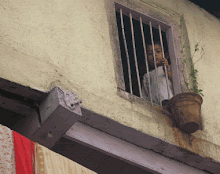This wandering community was not living in isolation. The Israelites lived among the Canaanites, Hittites, Amorites, Perizzites, Hivites and Jebusites and many other kinds of tribes n clans. Customs, rituals beliefs of all these tribes were thoroughly different from Israelites. Israelites used to marry the daughters of these clan and men from these clan used to marry Israeli daughters. (Judges 3:6)
Clashes between amongst these communities were obvious and every time some or other individual has always acted as a saviour for Israelites. Moses, Joshua, Judges…these were all a kind of Messiah for Israelites. Rather I can say that every period of this community’s existence had its own messiah. Having a messiah must be a kind of tradition at that time.
Jesus was just one of them.
Tuesday, July 15, 2008
Sunday, May 25, 2008
The ark of covenant & Idol worship
Does the idea of the ark of covenant defies the age old notion that Christianity is against idol worship?
Tuesday, January 22, 2008
Judges3
Judges 3 says “These are the nations the LORD left to test all those Israelites who had not experienced any of the wars in Canaan (he did this only to teach warfare to the descendants of the Israelites who had not had previous battle experience): the five rulers of the Philistines, all the Canaanites, the Sidonians, and the Hivites living in the Lebanon mountains from Mount Baal Hermon to Lebo Hamath. They were left to test the Israelites to see whether they would obey the LORD's commands, which he had given their forefathers through Moses”.
Philistines, Canaanites, Sidonians and Hivites were not eliminated completely. They were left by God to test the Israelites.
They were left by God or they themselves survived?
Philistines, Canaanites, Sidonians and Hivites were not eliminated completely. They were left by God to test the Israelites.
They were left by God or they themselves survived?
Judges: in Marathi its 'Shaste'
the book of Judges is named in Marathi as 'Shaste'. What does 'shasta' mean?
Subscribe to:
Comments (Atom)
